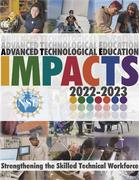
Project COMPLETE
ate.is/completepathways
Project COMPLETE (Controlling, Operating, and Measuring: Pathways for Learners to Engineering Technology Employment) is a project in collaboration with Louisiana Delta Community College in collaboration with Louisiana Technology University, which proposes an engineering technology career pathway for high school and post-secondary students. This project aims to prepare students for instrumentation technician careers in manufacturing and other highly automated industries. Through recruitment and retention programs set in a diverse geographic region, this project has the potential to promote increased participation in the STEM workforce by veterans, women, and students from groups that have been traditionally underrepresented in STEM fields. This project aims to positively affect local industry and residents by strengthening the pipeline into high-technology, high-wage jobs. This project has the potential to improve the quality of life for these residents and to serve as a model for high-tech workforce development in other rural areas across the nation.







